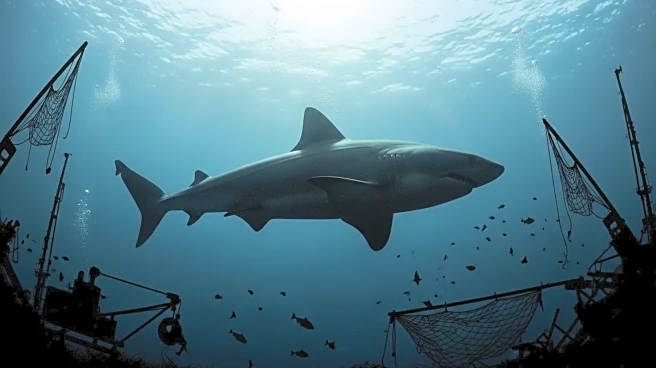What's Happening?
Deep-sea sharks, living under enormous water pressure close to the seafloor, are facing threats from bottom trawling and deep-sea mining. Marine biologist Ruth Leeney conducted research off Namibia, documenting various deep-sea shark species caught accidentally by trawlers. These sharks often suffer barotrauma due to pressure changes, leading to internal damage. Leeney's research highlights the impact of bottom trawling on biodiversity and the potential consequences of deep-sea mining. Her findings include previously unrecorded species near Namibia and the presence of gulper sharks, which are targeted for their liver oil used in cosmetics. The study underscores the importance of these ecosystems to ocean health and balance.
Why It's Important?
The research on deep-sea sharks sheds light on the ecological significance of these species and the threats they face from human activities. Bottom trawling and deep-sea mining can lead to significant biodiversity loss, affecting ocean health and balance. Sharks play a crucial role in marine ecosystems, and their decline could disrupt food chains and ecological processes. Raising awareness about these threats is essential for developing sustainable fishing practices and conservation strategies. Protecting deep-sea sharks and their habitats is vital for maintaining ocean biodiversity and ensuring the resilience of marine ecosystems.









